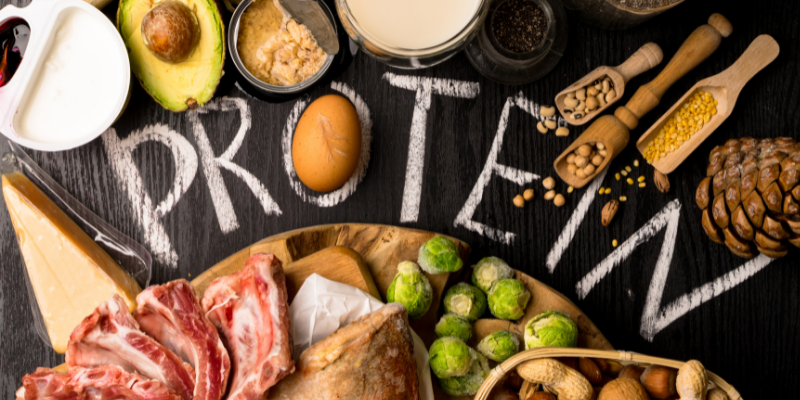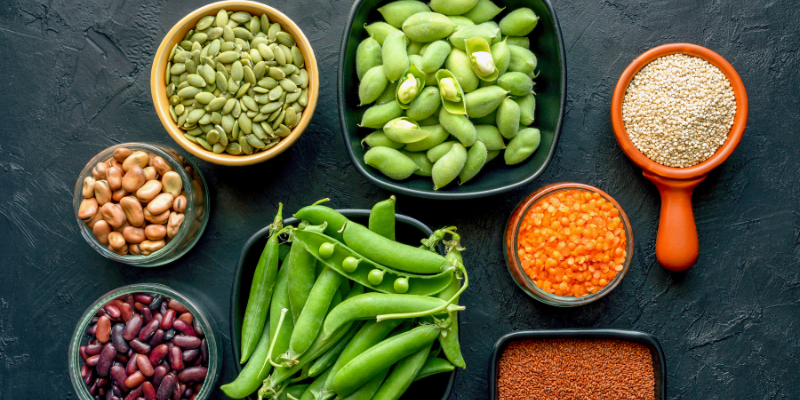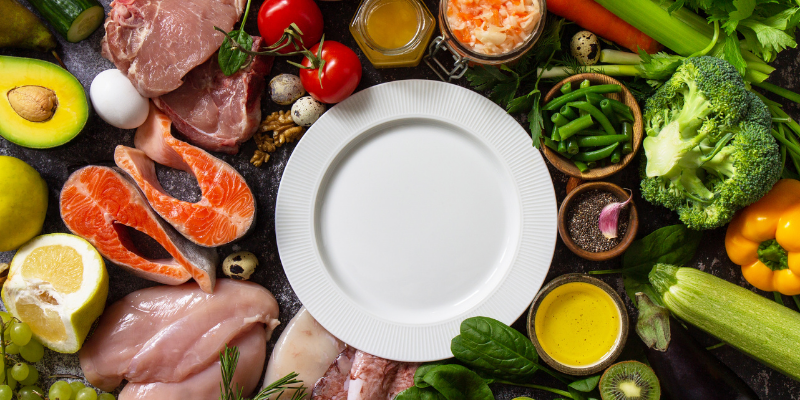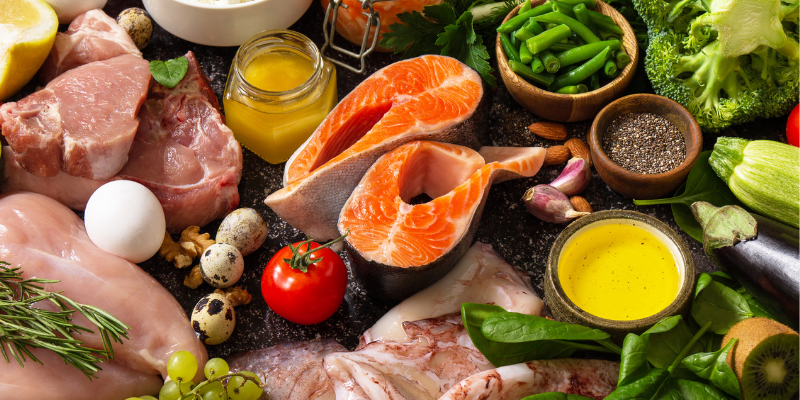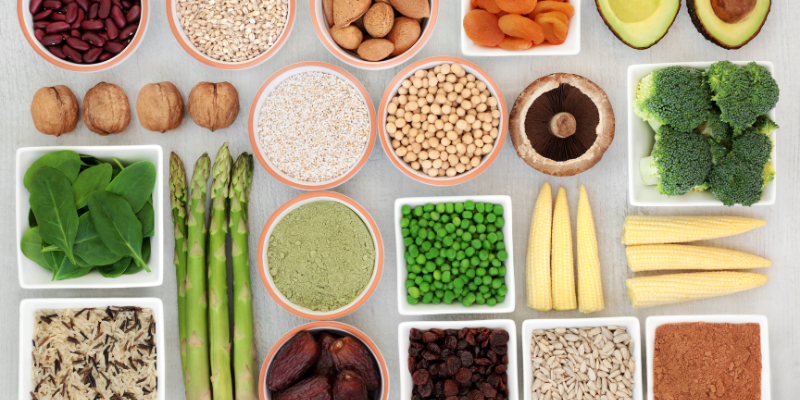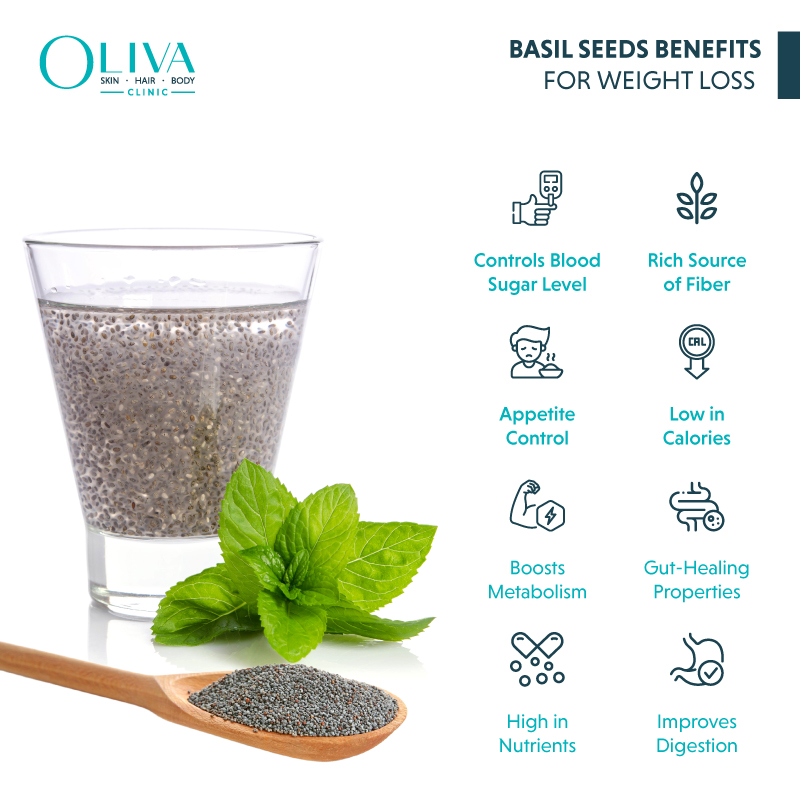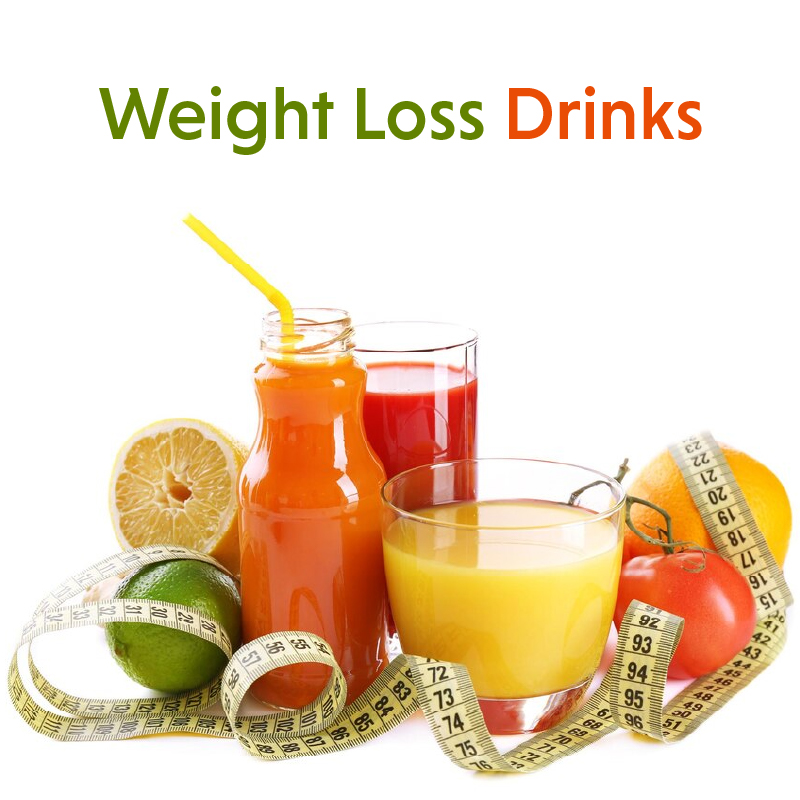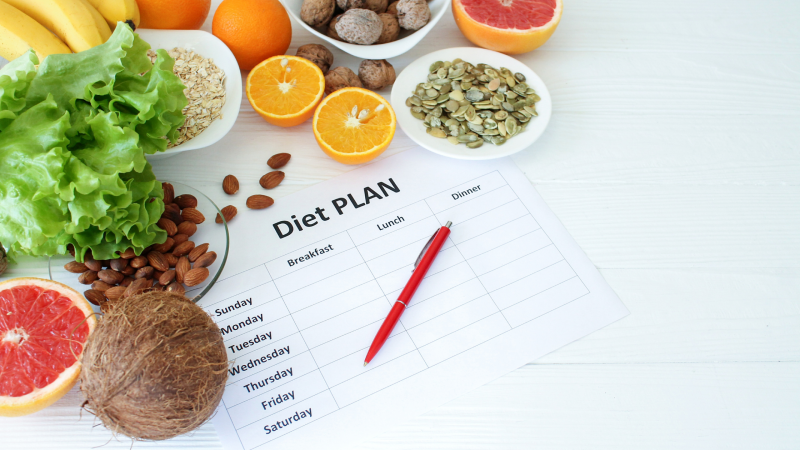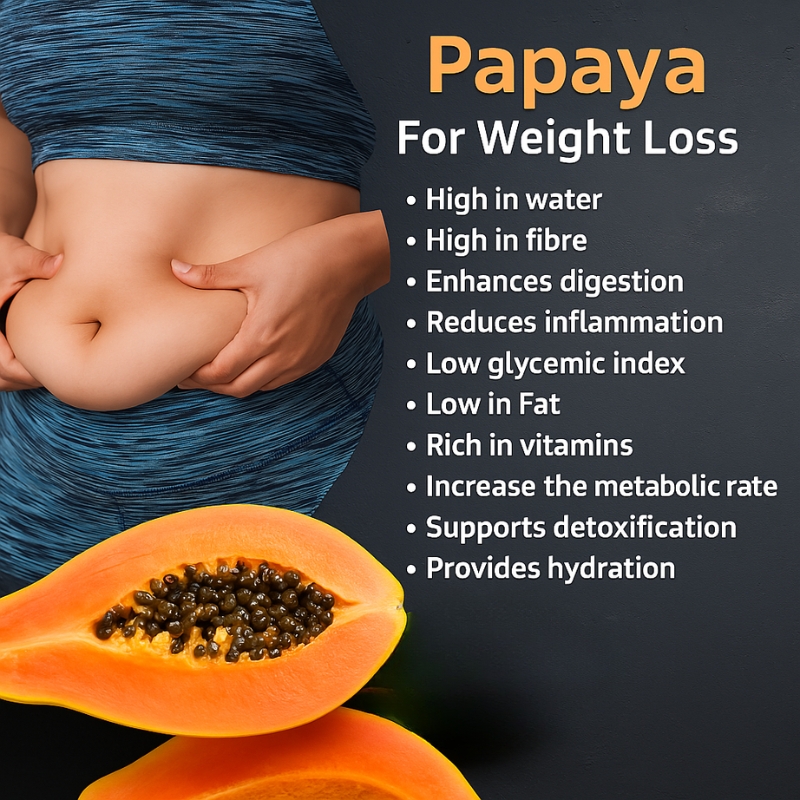High Protein Diet For Weight Loss
Finding a weight loss plan suitable to your unique needs can be exhausting, but we are here to help. Keep reading to understand the benefits of including high protein foods in your meals along with a 7-day high protein diet plan for vegetarians and non-vegetarians. Meet your weight loss goals healthily!
What Is Protein?
Protein is one of the major macronutrients besides carbohydrates and fat. One gram of dietary protein equals 4 Kcals. Proteins comprise a string of amino acids, which help build muscle mass and repair and maintain tissues. Approximately 15 per cent of the body weight is composed of proteins.
Must Read: Non-Surgical Weight Management Solution
Benefits Of A High Protein Diet For Weight Loss
Studies show that increasing your protein consumption can significantly affect your appetite, metabolism, weight, and body composition.
Let us look at the benefits of a high protein diet for weight loss:
- Promotes Satiety: More protein in your diet may help to reduce your hunger and appetite for several hours after you eat. A high-protein diet reduces the hunger hormone called ghrelin while increasing appetite-suppressing hormones. This could limit binge eating.
- Enhances Metabolic Rate: A higher protein intake burns more calories as your metabolic rate increases by 20-35% to digest protein than just 5-15% for carbohydrates or fat digestion.
- Helps Balance Body Composition: When you eat fewer calories, your metabolism slows down, partly because of decreased muscle mass. Meanwhile, eating more protein might help prevent muscle loss and maintain a healthy metabolic rate. Hence, a high-protein diet aids in fat loss while preserving muscle mass, thus maintaining a healthy body composition.
- Increases Muscle Mass: Studies show that combining a high protein diet with resistance exercises enhances muscle size and strength, thus improving your muscle mass. This is essential to protect your bones.
- Helps Manage Blood Sugar Levels: When you combine protein with carbohydrate-rich foods, it slows down the absorption of sugar into the bloodstream. This may help keep your blood sugar levels from fluctuating, while preventing future cravings.
- Utilises More Energy For Digestion: The energy we spend to break down food into tiny, absorbable components is called “thermic effect of food” (TEF). Protein has a greater TEF than carbohydrates and fat, implying that digesting protein burns more calories than digesting the other two.
Must Read: How Much Weight Can You Lose In A Month Under A Strict Diet?
How Protein Works In Weight Loss?
Basal metabolic rate, diet-induced thermogenesis, and the energy cost from physical activity comprise everyday energy expenditure. Protein helps regulate body weight by promoting satiety, linked to diet-induced thermogenesis. (1) Ghrelin, the hunger hormone, reduces when you are on a high-protein diet, while GLP-1, peptide YY, and cholecystokinin, the appetite-suppressing hormones, increase. This helps in eating less and cutting down the calories easily. (2)
A study conducted in healthy women concluded that when you trade high-fat snacks for high protein snacks like yoghurt, it helps in satiety and appetite control. (3) Another study in adolescents also had similar results, where high protein soy foods as afternoon snacks helped improve satiety and diet quality. (4)
EXPERT ADVICE
Protein consumption for healthy weight loss
For healthy weight loss, you must look at losing fat mass and gaining muscle mass. Consume 1.2 to 1.7 grams of protein per kilogram of body weight per day and combine it with strength training to enhance muscle growth.
-Lavanya Parthasarathy, PhD, CDE
How Much Protein Should One Eat Everyday?
As per a recent study – Protein Consumption in Diet of Adult Indians: A General Consumer Survey (PRODIGY) — 9 out of 10 people consume less-than recommended protein in India. The Indian Council of Medical Research (ICMR) recommends 0.8 to 1 gm protein per kg body weight per day to fulfil the basic nutritional needs of Indians.
The ICMR calculated protein levels for Indians based on per kg of reference weight for all ages. Protein consumption of 25–30% of total daily calories increases metabolism by up to 80–100 calories per day compared to lower protein diets. Hence, for a 1200-calorie diet you roughly need to consume 72-75gms of protein.
More recent research also shows that high-protein, low-fat diets promote weight loss more effectively than high-carb, low-fat diets. (5)
EXPERT ADVICE
How much protein is too much protein?
There has been a lot of debate on if consuming too much protein can harm the body?
The answer is yes. It could lead to kidney stones. If you are consuming a diet rich in red meat and saturated fats to meet your protein requirements, you are at a higher risk of heart disease and colon cancer.For an average person, who is not a pro-athlete or a bodybuilder, up to 2 grams per kilogram of protein per day is sufficient. The body cannot store protein, thus any excess is either consumed for energy or stored as fat. Excess calories, no matter where they come from, may be harmful to the body.
-Lavanya Parthasarathy, PhD, CDE
Must Read: How to Lose Weight Quickly in 2 Weeks?
What To Eat On A protein diet?
Animal proteins are first-class proteins as they provide all the essential amino acids the body can fully utilise. Fish, meat, eggs, and dairy products like curd, milk, paneer and tofu will help you meet your daily protein requirements. There are enough options for vegetarians too.
Here is a comprehensive list of foods you can include in your daily meals.
Non-Vegetarian |
Vegetarian |
| Lean meats | Soyabean |
| Chicken | Pulses and legumes like chickpeas, channa, horsegram, mung dal, peas etc. |
| Pork | Sprouts made of mung, mothbeans, kidney beans, channa etc. |
| Eggs | Nuts almonds, walnuts, pecan, pine nuts etc. |
| Fish | Seeds like chia seeds, pumpkin seeds, flax seeds, amaranth seeds etc. |
| Seafood like lobster, shrimp and crabs | Tofu |
7-Day High Protein Diet Plan For Weight Loss
Day 1
- Kickstarter @ 7 am: Masala tea without sugar
- Breakfast @ 8:30 am: 1 cup veg poha with lime + 1 boiled egg
- Mid-Morning Meal @ 11 am: 1 medium size orange + 8 half walnuts
- Lunch @ 1pm: 1 cup quinoa pulav with vegetables + 1 cup curd/1 glass buttermilk + tomato salad
- Teatime snack @3:30 pm: 1 glass buttermilk with chia seeds
- Evening snack @ 5pm: 1 cup sprout chaat
- Dinner @ 7 pm: 200 gm chicken sauté with vegetables
Day 2
- Kickstarter @ 7 am: Milk with haldi without sugar
- Breakfast @ 8:30 am: 2 moong dal cheela with tomato ginger chutney
- Mid-Morning Meal @ 11 am: 1 medium pomegranate
- Lunch @ 1pm: 2 phulkas + chicken curry + 1 glass buttermilk
- Teatime snack @3:30 pm: Masala tea without sugar
- Evening snack @ 5pm: ½ apple + chia seeds + walnut + curd smoothie
- Dinner @ 7pm: 1 plate quinoa egg chicken fried rice
Day 3:
- Kickstarter @ 7 am: Masala tea without sugar
- Breakfast @ 8:30 am: 2 egg white omelette with vegetables
- Mid-morning meal @ 11 am: Apple + boiled peas + chia seeds salad
- Lunch @ 1pm: Palak paratha with jeera raita + flax seed chutney
- Teatime snack @3:30 pm: Ginger lemon tea + 8 half walnuts
- Evening snack @ 5pm: Tomato soup
- Dinner @ 7pm: Masala quinoa with vegetables + 200 gm grilled fish
Day 4
- Kickstarter @ 7 am: Milk with dry fruit powder (no sugar)
- Breakfast @ 8:30 am: 2 quinoa dosa + green chutney
- Mid-morning meal @ 11 am: ½ apple + chia seeds + walnut + curd smoothie
- Lunch @ 1pm: Hummus + sweet corn + vegetables in wheat roti wrap
- Teatime snack @3:30 pm: Mint buttermilk + 8 half walnuts
- Evening snack @ 5pm: 1 poached egg
- Dinner @ 7pm: 200 gm chicken tikka + shredded cabbage salad with lime
Day 5
- Kickstarter @ 7 am: Masala tea without sugar
- Breakfast @ 8:30 am: Veg + soaked moong dal appam + green chutney
- Mid-Morning Meal @ 11 am: Papaya 1 cup
- Lunch @ 1pm: 1 jowar roti + green leafy vegetable + soya bean curry + veg raita
- Teatime snack @3:30 pm: Masala tea without sugar + 8 half walnuts
- Evening snack @ 5pm: Spicy chana masala
- Dinner @ 7pm: 1 mix veg dal paratha + curd + flax seed chutney
Day 6
- Kickstarter @ 7 am: Milk with haldi without sugar
- Breakfast @ 8:30 am: 1 paneer paratha with green chutney + curd
- Mid-morning meal @ 11 am: 1 apple
- Lunch @ 1pm: 2 phulkas + mung dal methi veg + sambar/dal + salad + 1 glass buttermilk
- Teatime snack @3:30 pm: Masala tea without sugar+ 8 half walnuts
- Evening snack @ 5pm: Palak soup + roasted chana
- Dinner @ 7pm: Veg quinoa pulav + dal makhana + curd
Day 7
- Kickstarter @ 7 am: Masala tea without sugar
- Breakfast @ 8:30 am: Veg dalia upma + buttermilk
- Mid-Morning Meal @ 11 am: 1 pear
- Lunch @ 1pm: 2 phulkas+ paneer burji + lauki dal+ 1 glass buttermilk
- Teatime Snack @3:30 pm: Masala tea without sugar+ 8 half walnuts
- Evening Snack @ 5pm: ½ apple + chia seeds + walnut + curd smoothie
- Dinner @ 7pm: Veg khichdi + kadhi + green leafy vegetable
Must Read: Healthy Meal Plan For Weight Loss: Selection Tips
Tips To Follow A High-Protein Diet Effectively
- Add at least one high protein source in each meal to meet your daily nutrition goals. Make it a habit to eat your proteins before carbs in every meal, as proteins are satiating and minimise sugar and insulin spikes. You can start your day with a protein-rich breakfast and thus reduce the number of calories in subsequent meals.
- Opt for protein-rich snacks like roasted nuts, peanuts, channa or seeds with fruits. Cheese or cottage cheese and yoghurt are options too. Add your favourite fruits to yoghurt with some nuts and seeds to make it extra delicious and nutritious.
- Try experimenting with meals, like combining cereals with pulses for essential amino acids or cereals with millets to optimise protein.
- Keep a food journal to track the quantity and quality of your proteins.
EXPERT ADVICE
Consuming protein both before and after exercise has proven benefits.
When you exercise in an unfed state, you lose more protein, making it difficult for your body to repair and develop muscle. Pre-exercise protein supplementation increases resting energy expenditure for up to 48 hours after exercise, which helps to improve body composition.
Thus, protein before exercise will not only assist in building lean muscle mass and consequently strength, but will also help reduce fat mass.
On the other hand, muscle protein is broken down during exercise. So, taking adequate protein after engaging in a resistance workout will compensate for it.-Lavanya Parthasarathy, PhD, CDE
NOTE:
You must consult a professional before starting a high-protein diet to prevent any complications. Those with underlying medical problems, especially those related to kidneys, should see a doctor
Must Read: Things You Should Avoid To Lose Weight
Conclusion
A high-protein diet helps reduce weight and maintain ideal body composition as it is satiating while boosting metabolic rate and preserving muscle mass. You can choose from a variety of protein sources that also provide other health benefits.
Our certified subject matter experts do extensive research and collate facts from reputed scientific journals and international studies to create informative and engaging articles related to all your dermatology concerns. They strive to help you decipher medical jargon, distinguish fact from fiction and overcome paranoia. Our qualified medical board or expert panel goes a step further to verify these facts based on their rich academic knowledge, vast clinical experience and critical industry insights to ensure you consume only medically accurate content that empowers you to make informed decisions about your hair and skin-care treatments and weight management. Check out our Editorial policy for further details
https://nutritionandmetabolism.biomedcentral.com/articles/10.1186/1743-7075-1-5https://pubmed.ncbi.nlm.nih.gov/16002798/
https://pubmed.ncbi.nlm.nih.gov/25266206/
https://pubmed.ncbi.nlm.nih.gov/25995282/
https://pubmed.ncbi.nlm.nih.gov/11838888/
https://pubmed.ncbi.nlm.nih.gov/25926512/
https://nutritionandmetabolism.biomedcentral.com/articles/10.1186/1743-7075-9-5
https://pubmed.ncbi.nlm.nih.gov/17023705/
https://pubmed.ncbi.nlm.nih.gov/15867303/


